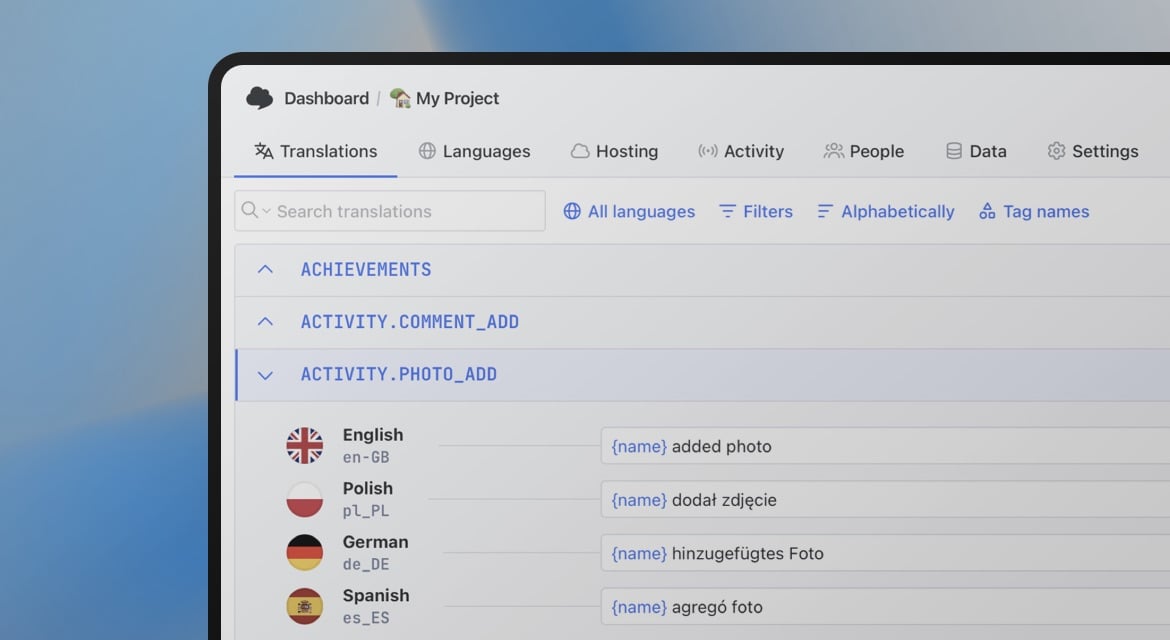
Locale Code: ko-KR
The locale code represents Korean language in South Korea country.
See all locale codesTranslation Editor ✨
Save time on handling localization files and translation strings.
Try SimpleLocalizeGeneral
General information related to the locale code
| Property | Value |
|---|---|
| Country Name | South Korea |
| Country Name (Local) | 대한민국 / 大韓民國 |
| Country Flag | 🇰🇷 |
| Country Area | 100210 km2 |
| Country Code (ISO 3166-1) | KR |
| Language Name | Korean |
| Language Name (Local) | 한국어 |
| Language Code (ISO 639-1) | ko |
| Continent | Asia |
| Region | Eastern Asia |
| Capital Name | Seoul |
| Capital Latitude | 37.566 |
| Capital Longitude | 126.9784 |
| Postal Code Format | SEOUL ###-### |
| Postal Code Regex | ^(?:SEOUL)*(\d{6})$ |
Currency
The currency used for the locale code ko-KR is South Korean Won.
| Property | Value |
|---|---|
| Currency Name | South Korean Won |
| Currency Name (Local) | South Korean won |
| Currency Code | KRW |
| Currency Symbol | ₩ |
| Currency Numeric | 410 |
| Currency Subunit Value | 100 |
| Currency Subunit Name | Chon |
Timezones
South Korea has one timezone with UTC offset UTC+09:00.
Get started with SimpleLocalize
- All-in-one localization platform
- Web-based translation editor for your team
- Auto-translation, QA-checks, AI and more
- See how easily you can start localizing your product.
- Powerful API, hosting, integrations and developer tools
- Unmatched customer support
"The product
and support
are fantastic."
"The support is
blazing fast,
thank you Jakub!"
"Interface that
makes any dev
feel at home!"
"Excellent app,
saves my time
and money"
What is 'ko-KR' locale code?
Every locale code is a unique identifier for a specific language and country (or region). It is used in software development to localize applications and websites. Locale code is a combination of ISO 639-1 language code and ISO 3166-1 country code. For example, ko_KR is a locale code for Korean language in South Korea. Locale codes are used to define the language and country settings for date, time, currency, and number formatting. They are also used to translate user interfaces and messages in software applications. Locale codes are essential for building multilingual and internationalized software products. They are used in programming languages, frameworks, and libraries to provide internationalization and localization features. Locale codes are also used in databases, operating systems, and web browsers to provide language and country-specific settings. Locale codes are standardized by the International Organization for Standardization (ISO) and are widely used in software development.

